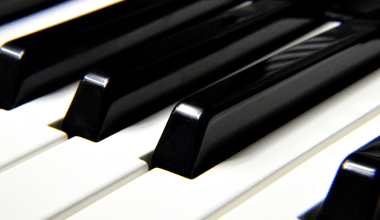A singer’s voice is their instrument, and choosing the right professional microphone for singing is crucial to showcasing it. Whether you’re performing live or recording in a studio, a high-quality microphone can elevate your sound. This comprehensive guide explores everything you need to know about finding the best microphone, including types, features, and recommendations.
Why a Professional Microphone Matters for Singing
A professional microphone enhances the clarity, richness, and dynamics of your voice. Here’s why it’s essential:
- Sound Quality: Captures the true essence of your voice.
- Durability: Built to withstand frequent use.
- Special Features: Tailored for vocal nuances and styles.
- Versatility: Works well in different environments like studios and live stages.
Choosing the right professional microphone for singing ensures your vocals shine in any setting.
Types of Professional Microphones for Singing
1. Dynamic Microphones
Dynamic microphones are robust and ideal for live performances.
Advantages:
- Durable and resistant to moisture.
- Handles high sound pressure levels (SPL).
- Affordable compared to other types.
Best Use: Live performances and loud environments.
2. Condenser Microphones
Condenser microphones are sensitive and suited for studio recordings.
Advantages:
- Captures detailed vocal nuances.
- Wide frequency range.
- Requires phantom power for operation.
Best Use: Studio settings where precision is key.
3. Ribbon Microphones
Ribbon microphones are known for their warm and vintage sound.
Advantages:
- Smooth frequency response.
- Adds a classic character to vocals.
Best Use: Studio recordings with a retro or warm tonal requirement.
Understanding these types helps narrow your search for the perfect microphone.
Key Features to Look for in a Professional Microphone for Singing
1. Polar Pattern
The polar pattern determines how the microphone picks up sound. Common patterns include:
- Cardioid: Focuses on sound directly in front of the mic.
- Omnidirectional: Picks up sound from all directions.
- Bidirectional: Captures sound from the front and back.
2. Frequency Response
A microphone’s frequency response affects how it reproduces different vocal ranges. Look for a range that complements your voice type.
3. Sensitivity
Higher sensitivity microphones capture subtle vocal details, making them ideal for soft singers or studio recordings.
4. Build Quality
A professional microphone should be durable, especially for live performances.
5. Connectivity
Most microphones connect via XLR cables, which provide a stable and professional audio signal.
These features are essential to selecting a microphone that matches your needs.
Top Professional Microphones for Singing
1. Shure SM7B
A favorite among vocalists and podcasters, the Shure SM7B offers excellent sound clarity.
- Best For: Studio recordings and broadcasts.
- Features: Wide frequency range, cardioid polar pattern.
2. Neumann TLM 103
Known for its pristine sound quality, the Neumann TLM 103 is a studio powerhouse.
- Best For: Professional studio recordings.
- Features: Low noise, high sensitivity.
3. Rode NT1-A
An affordable yet high-quality condenser microphone.
- Best For: Home studios and beginners.
- Features: Low self-noise, wide dynamic range.
4. Sennheiser e935
A dynamic microphone perfect for live vocals.
- Best For: Live performances.
- Features: Rugged build, excellent feedback rejection.
5. Audio-Technica AT2020
A budget-friendly option for those starting their singing journey.
- Best For: Entry-level studio recordings.
- Features: Cardioid pattern, solid build.
These microphones cater to various budgets and needs, ensuring something for everyone.
Tips for Choosing the Right Microphone for Singing
- Know Your Purpose: Define whether you need a mic for live performances or studio recordings.
- Test Before Buying: Whenever possible, test microphones with your voice to find the best match.
- Consider Accessories: Pop filters, shock mounts, and stands enhance performance.
- Set a Budget: Professional microphones range from affordable to premium. Decide your budget early.
Selecting the right microphone involves research and understanding your unique vocal requirements.
How to Use a Professional Microphone for Singing
- Positioning: Maintain a consistent distance from the microphone for balanced sound.
- Use a Pop Filter: Reduces plosive sounds like “P” and “B.”
- Adjust Gain Levels: Ensure your voice doesn’t clip or distort.
- Practice Microphone Technique: Learn to control dynamics and proximity for the best results.
Proper usage ensures your microphone captures your vocals at their best.
Caring for Your Professional Microphone
- Clean Regularly: Wipe with a soft cloth to remove dust and moisture.
- Store Properly: Use a case or pouch to protect it from damage.
- Avoid Dropping: Handle with care, especially during transport.
- Check Connections: Inspect cables and connectors for wear.
Regular maintenance prolongs the life of your microphone and keeps it performing optimally.
Common Mistakes to Avoid with Professional Microphones
- Incorrect Positioning: Placing the mic too close or far affects sound quality.
- Ignoring Room Acoustics: Poor acoustics can ruin a great recording.
- Overlooking Phantom Power: Condenser microphones require phantom power to function.
- Skipping Warm-Ups: Always warm up your voice before using a microphone.
Avoiding these mistakes helps you get the most out of your professional microphone for singing.
Affordable Alternatives for Beginners
If you’re not ready to invest in a high-end professional microphone, here are some budget options:
- Samson Q2U: A hybrid microphone offering both USB and XLR connectivity.
- Blue Yeti: Popular among streamers and podcasters for its versatility.
- AKG P120: A great entry-level condenser microphone.
These alternatives provide excellent value without compromising too much on quality.
Future Trends in Professional Microphones for Singing
- AI Integration: Advanced microphones may include AI to optimize sound automatically.
- Wireless Technology: Improved wireless microphones for hassle-free performances.
- Compact Designs: Portable microphones with professional-grade features.
Staying updated with trends ensures your equipment remains relevant and innovative.
Conclusion
Finding the perfect professional microphone for singing is a journey that starts with understanding your needs. Whether you’re a seasoned performer or just beginning, the right microphone can make all the difference in showcasing your voice. By considering factors like type, features, and budget, you can confidently choose a microphone that enhances your vocal performances.
Start exploring today, and let your voice shine with clarity and power.
Related Articles:
For further reading, explore these related articles:
- Best Recording Microphones for Singing: Find Your Perfect Mic
- Types of Microphones: The Ultimate Guide for Musicians & Creators
- Best Microphone for Vocals – Top Picks for Studio and Live Performances
For additional resources on music marketing and distribution, visit Deliver My Tune.






